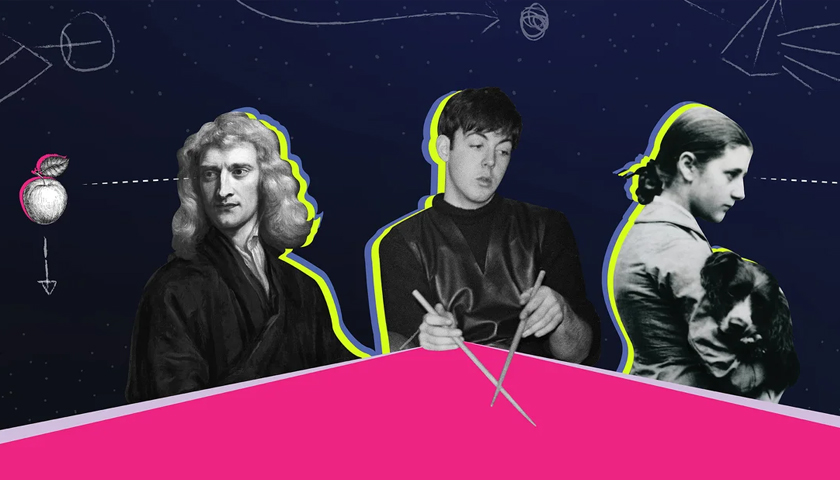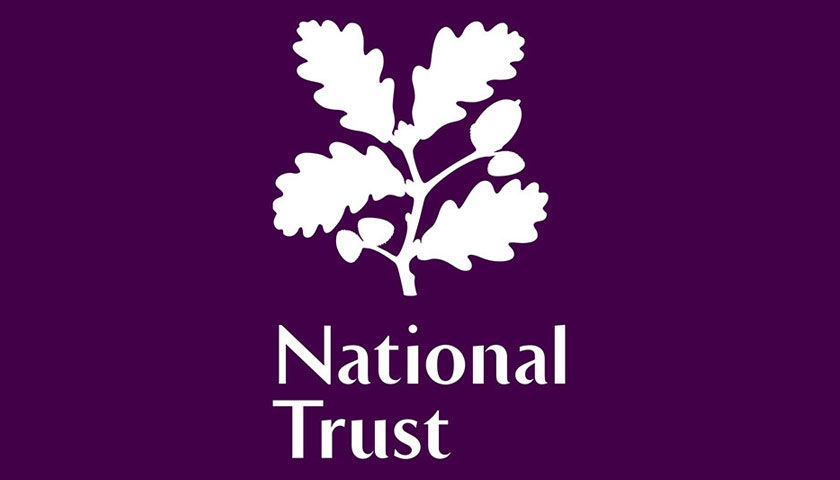The National Trust has opened applications for a Time + Space Award for young people, inspired by Sir Isaac Newton’s annus mirabilis or ‘year of wonders’, which happened when he was just 23.
The new Award will support some of today’s 16-25s to bring their ideas to life at Newton’s home, Woolsthorpe Manor, a farmhouse in Lincolnshire. Newton said of his ‘year of wonders’, “In those days I was in the prime of my age for invention.”
Working with a panel of experts and voices from the fields of science, creativity and culture, the new award is based on the extraordinary story of a young man, whose father died before he was born, who was misunderstood by his family and teachers and raised in turbulent times. Forced to return from university during a pandemic in 1665, he used the time and space away from his everyday life to explore things he was relentlessly curious about. As a result, he made world-changing discoveries about calculus, optics, motion and gravity.
16-25 year olds living across the UK will be able to apply for a Time + Space Award to be given time, space and resources to explore their own big idea in one of four areas: science, art and culture, society, nature and climate. The award is not limited to students, it’s aimed at finding innovators, entrepreneurs and original thinkers.
The scheme is being launched after research revealed that half of today’s young people say the lockdowns they lived through made them more creative (50%). While many believe lockdown had a range of negative impacts, 44% believe that it had a positive impact on their hobbies and interests. 61% of 16-25-year-olds began a new hobby during lockdown, and a majority continue that hobby to this day.
Further research revealed that young people overwhelmingly see themselves as creative (92%) but money, time and confidence are some of the biggest barriers to making their ideas happen. 68% of 16-25s say they need space (physical or psychological) to unlock creativity, 51% need inspiration from places of interest or people who are notable in their fields, while 60% said what they need is time.
Around 3 million 16-25s had an idea during the pandemic they’ve yet to make happen, 25% had a science/invention idea, 22% an idea related to writing, 22% an idea related to art and 9% an idea related to changing society.
The National Trust is working with experts including Dame Dr Maggie Aderin-Pocock, David Olusoga, Tayshan Hayden-Smith and Megan McCubbin who will choose winners of the Time + Space Awards, alongside National Trust representatives and an independent judge. Applications will be based on answering a big question on one of the four themes and can be made in writing, via video or via audio. It’s hoped the scheme will help unlock the potential of young people from across the country and from a wide range of backgrounds.
Celia Richardson, National Trust Director of Communications and Marketing, said: “National Trust places belong to the nation and often they house extraordinary creative, scientific and geopolitical legacies. We want to use them to inspire the future as well as explore the past. This award is about opening up a place that’s fizzing with historic significance and inviting today’s young people to use it to understand, explore, and challenge the way we see the world.
“History is often made by young people, and that certainly happened here. Woolsthorpe Manor has since become a site of pilgrimage to many – including Albert Einstein. We’re delighted to be able to use the house for new inventions and ideas. We can’t wait to share a Newtonian apple pie with the winners and hear about how they want to change the world.”
Space scientist and educator, Dame Dr Maggie Aderin-Pocock said: “I know young people with big dreams and world-changing ideas are out there. This award is your amazing chance to bring them to life.”
British-Nigerian historian, broadcaster and film-maker David Olusoga OBE said:
“Can your idea shift the way we understand the world? Does it have the power to shape culture and where the world goes next?”
TV presenter, social & environmental activist, Tayshan Hayden-Smith said:
“It’s really all got to be about change, joy, hope and connection – we can’t do this without the younger generations and it’s with guidance and support that we can take purposeful action to inspire much-needed change.”
Scientist, and climate & biodiversity communicator, Megan McCubbin said:
“Young people have the power to tackle the climate and biodiversity emergency. This is a great platform to explore how – bring your boldest, bravest ideas…!”
Newton’s home is in Grantham in Lincolnshire, and the apple tree in the scientific legend still stands in the garden. The house and garden are in the care of the National Trust and are open to visitors (Woolsthorpe Manor will reopen on 10 February 2024). It is here that young Isaac is believed to have undertaken his key light experiment in a bedroom now known as Newton’s chamber.
He bored a tiny hole in the wooden shutters so only a thin pencil of light could enter the darkened room. The young Isaac was fascinated by the effect that physical limitations might have on what people see. He almost blinded himself twice by exploring the repercussions of squeezing his eyeball with a large blunt needle and staring directly at the sun with one eye.
The prize follows a programme the National Trust ran in 2022, which saw young musicians given the chance to write and perform at 20 Forthlin Road, the childhood home of Sir Paul and Mike McCartney and ‘the birthplace of the Beatles’, where around 30 songs were written. Serena Ittoo, Emily Theodora, Dullan and HUMM were chosen to perform their original songs written after visiting the house, for Paul’s 80th birthday. Ni Maxine and TRAITS covered Love Me Do for its 60th anniversary and also recorded their own music in the house.
In addition to Isaac Newton and Paul and Mike McCartney’s childhood homes, The National Trust cares for a number of places that people who changed the world lived in or loved, including Lacock Abbey, the birthplace of photography; Beatrix Potter’s beloved farmhouse and inspiration for her children’s books; the homes of Virginia Woolf and Sir Winston Churchill; and Toy’s Hill, one of the places that inspired Octavia Hill to found the National Trust.
To find out more including how to enter and the terms and conditions, visit nationaltrust.org.uk/time-and-space
The deadline for entries for a Time + Space Award is 30 April 2024. Anyone submitting a valid application will also be given a free National Trust day pass for two, to enable them to visit any of the places the Trust cares for to have some time and space to wonder.
The Big Questions
Science Big Question from Dame Dr Maggie Aderin-Pocock
“How can science be more accessible and relevant to everyone?”
Art and culture Big Question from Professor David Olusoga OBE
“Access to art and culture isn’t equal, how can your big idea address the imbalance?”
Society question from Tayshan Hayden-Smith
“What’s your big idea that would change society for the better, for everyone?”
Nature and climate question from Megan McCubbin
“Nature and climate are in crisis. How can your big idea save them and help us break out of the echo chamber?”

